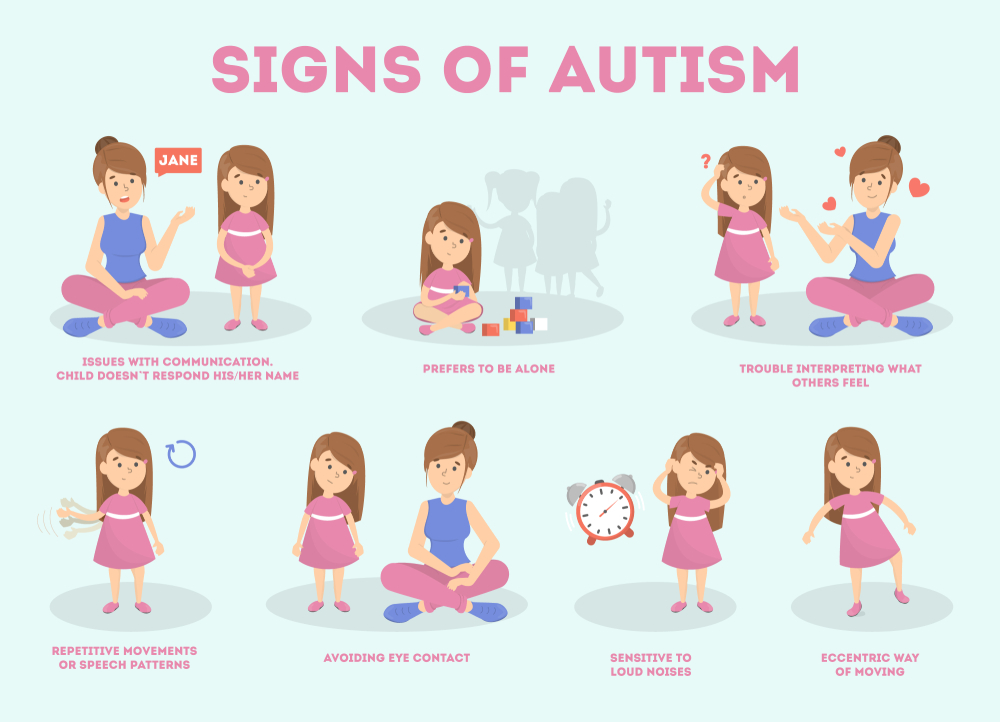Untapped Potential: Recognizing Autism And ADHD In 3 Million+ Brits

Table of Contents
The Prevalence of Undiagnosed Autism and ADHD in the UK
The number of individuals in the UK living with undiagnosed autism and ADHD is staggering. While precise figures are difficult to obtain due to variations in diagnostic practices and underreporting, estimates suggest that over 3 million people may be living with these conditions without a formal diagnosis. This significant underdiagnosis is a major concern, impacting the lives of countless individuals and families.
Several factors contribute to this alarming statistic:
- Lack of awareness: Many parents and professionals lack sufficient knowledge about the signs and symptoms of autism and ADHD, leading to delayed or missed diagnoses. This is particularly true for adults who may have lived with these conditions their whole lives without recognition.
- Long waiting lists: Accessing diagnostic assessments through the NHS can involve lengthy waiting times, often causing significant delays in receiving support and intervention.
- Variability in diagnostic criteria and approaches: Inconsistency in diagnostic approaches across different healthcare providers can lead to inconsistent diagnoses and further contribute to underdiagnosis.
- Misconceptions and stigma: Persistent misconceptions and stigma surrounding autism and ADHD often prevent individuals from seeking help, fearing judgment or misunderstanding.
Recognizing the Signs and Symptoms of Autism and ADHD in Adults and Children
Recognising the signs of autism and ADHD is crucial for early intervention. While symptoms vary greatly between individuals, some common indicators exist across different age groups.
Autism Spectrum Disorder (ASD):
- Difficulties with social communication and interaction: Challenges in understanding social cues, engaging in reciprocal conversations, and forming relationships.
- Repetitive behaviours and restricted interests: Engaging in repetitive actions or fixations on specific interests to the exclusion of others.
- Sensory sensitivities: Experiencing heightened or diminished sensitivity to sensory input such as light, sound, touch, taste, or smell.
- Challenges with flexibility and change: Difficulty adapting to changes in routines or environments, leading to anxiety or distress.
Attention-Deficit/Hyperactivity Disorder (ADHD):
- Inattention and distractibility: Difficulty focusing on tasks, easily losing attention, and struggling to maintain concentration.
- Hyperactivity and impulsivity: Excessive restlessness, fidgeting, interrupting conversations, and acting without thinking.
- Difficulty with organization and time management: Struggling to plan, prioritize, and complete tasks, leading to disorganisation and missed deadlines.
- Emotional regulation challenges: Experiencing intense emotional responses, difficulty managing emotions, and impulsive behaviour stemming from emotional dysregulation.
The Importance of Early Diagnosis and Intervention for Autism and ADHD
Early diagnosis of autism and ADHD is paramount to accessing appropriate support and improving outcomes. The benefits are substantial:
- Improved quality of life for individuals and families: Early intervention helps individuals develop coping mechanisms, manage symptoms, and build supportive relationships. Families also benefit from increased understanding and access to support services.
- Enhanced educational opportunities and academic success: Tailored educational support, such as individualized education programs (IEPs), can significantly improve educational outcomes for children and young adults with autism and ADHD.
- Reduced risk of mental health issues and co-occurring conditions: Early intervention can help prevent the development of anxiety, depression, and other co-occurring mental health conditions.
- Increased independence and self-sufficiency: With appropriate support and interventions, individuals can develop life skills, increase their independence, and achieve their full potential.
Interventions can include various therapies (e.g., speech therapy, occupational therapy, behavioural therapy), medication, and educational support.
Accessing Support and Resources for Autism and ADHD in the UK
Numerous organizations and resources are available in the UK to support individuals with autism and ADHD and their families. These include:
- National Autistic Society (NAS): – Provides information, support, and advocacy for autistic people and their families.
- ADHD UK: – Offers information, support, and resources for individuals with ADHD and their families.
- Local NHS services and community support groups: Your local NHS will have access to diagnostic services and support networks. Contact your GP to begin the process.
- Educational support services: Schools and colleges offer support services tailored to the needs of students with autism and ADHD.
Unlocking Untapped Potential: Taking Action
Undiagnosed autism and ADHD represent a significant untapped potential within the UK. This article has highlighted the prevalence of these conditions, the importance of early diagnosis, and the vital support services available. Early intervention profoundly improves the lives of individuals and families, leading to enhanced educational outcomes, better mental health, and increased independence. Don't let untapped potential go unrealized. Learn more about autism and ADHD in the UK today and take the first step towards diagnosis and support. Contact your GP or one of the organisations listed above to begin your journey.

Featured Posts
-
 Chinas Byd Challenges Fords Legacy In Brazils Growing Ev Market
May 13, 2025
Chinas Byd Challenges Fords Legacy In Brazils Growing Ev Market
May 13, 2025 -
 Nba Draft Lottery Rules Explained A Comprehensive Guide
May 13, 2025
Nba Draft Lottery Rules Explained A Comprehensive Guide
May 13, 2025 -
 Cassie Ventura And Alex Fines Red Carpet Appearance Photos From The Mob Land Premiere
May 13, 2025
Cassie Ventura And Alex Fines Red Carpet Appearance Photos From The Mob Land Premiere
May 13, 2025 -
 Understanding The Legacy Of Flushed Away Animation And Beyond
May 13, 2025
Understanding The Legacy Of Flushed Away Animation And Beyond
May 13, 2025 -
 The Coronation Street Cameo That Changed Sir Ian Mc Kellens Career Trajectory
May 13, 2025
The Coronation Street Cameo That Changed Sir Ian Mc Kellens Career Trajectory
May 13, 2025
